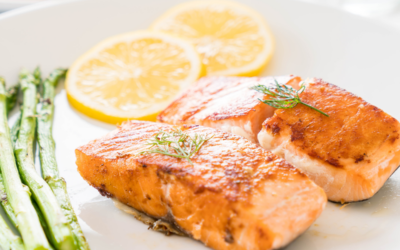Did you know that fasting can ultimately harm your metabolism?
Fasting is an excellent method to lose weight, but like all things with a side effect, intermittent fasting has its drawbacks. Before jumping into this weight loss process, take a look at our research below and consider whether this is the best fit for you.
What is Fasting?
Fasting is deliberately choosing to eat little or nothing at all for an extended period of time.
The interval for eating in fasting varies, and it is done for differing reasons. Fasting has existed for thousands of years in both a religious and cultural setting. People fast due to religion beliefs, protests, special occasions, traditions, and more.
However, in the 20th to 21st century, a new trend had begun to emerge – fasting to lose or maintain weight.
After WWII, there was a tremendous increase in average weight across all genders, especially in the US. The US government and other individuals, including those from the medical community, started researching weight loss for a healthy lifestyle.
Among their best discoveries was fasting. Going without food for an extended period helps the body to lose weight faster.

What is Metabolism?
Metabolism is the series of chemical reactions that transforms food into energy for the body. This process is very significant when it comes to how fasting causes weight loss.
It is metabolism that undergoes some changes when fasting to make the body lose weight fast and effectively.
Can Fasting Ruin your Metabolism?
This is a situation of overdoing something. Yes, fasting is good and has health and mental benefits. However, when overdone, it can also have negative side effects.
The body’s metabolism needs the ‘normal’ dose of calories to keep it working. It is just like hormones, which have a trigger. Metabolism is triggered by steady and average calories.
However, taking a break and fasting for some time will not hurt your metabolism. It’s extended, long-term fasting that might slow down your metabolism. If your metabolism starts slowing down, it also slows down weight loss, which means you aren’t making any progress at all.
Metabolism slows down as a result of the body going into a model known as ‘starvation mode’. Because the body understands there is no food, it starts slowing down the rate at which it burns calories. This is to prevent running out of stored calories for energy processes, which will eventually lead to death.
Intermittent fasting should be regulated—not too long or short.
Types of Fasting:
“Fasting” is a broad term, and the timeline for how long an individual fasts is entirely up to them. It may be based on personal preference, or on the specific fasting program they choose based on their comfort and needs. Check out some of the options below.
16:8 intermittent fasting
For 16:8 fasting, there roughly 8 hour window for eating during the day. That means you’ll be fasting for roughly 16 hours; the rest of the 24 hour period.
Most people suggest fasting between 11am and 7pm for best results, and because this time overlaps with when you would be eating major meals or snacking. You do need to fast for the full amount of hours in one stretch, and once that stretch is over, you can’t eat for another 16 hours.
The Warrior Diet
This method was one of the first to become really popular when fasting picked up again in the 20th and 21st centuries. It’s based on what you choose to eat as well as how long you are or are not eating.
The Warrior Diet focuses on a paleo-like diet. Small amounts of raw fruit and veggies during the day, and a large meal (sometimes even referred to as a “feast!”) at night.
5:2 Fasting
Two days of the week are selected in 5:2 for fasting.
Only 25% of the required daily calories – 500 for women and 600 for men – is consumed during these two days. It isn’t about cutting food out completely, but more restricting your calories for those two days.

Prerequisites of fasting
To be sure you are in proper shape physically and mentally to go through fasting, some preparations have to be made.
1. Healthy Diet
The foods you eat and the nutrients they supply you play an essential role in how well your body will do during fasting. If you are eating primarily sugary and processed foods, you’ll feel fatigued and ill during fasting. But eating a whole, balanced diet in the months and days preceding your fast will make sure your body is up to the task.
2. Daily Routines
Physical and mental health are just as important when it comes to fasting as your diet is. Physical health refers to exercise; you don’t need to be an Adonis, but you should be maintaining some kind of exercise routine regularly.
You have to get enough sleep, drink enough water, and have proper exposure to the sun; these are the basic guidelines to a healthy life. Also, make sure you’re approaching this journey with a positive mindset, as it’s easy to fall into negativity when it comes to dieting and weight loss.
Why is intermittent fasting good for you?
The #1 reason most people choose to fast is weight loss. It’s a way to control your diet that’s different and, in some ways more simple, than counting calories or restricting yourself to a very specific list of food.
But fasting has a few other benefits as well:
Lowers risk for type 2 diabetes
High blood sugar levels can lead to an individual developing type 2 diabetes. It’s a very prevalent disease these days due to the increased consumption of sugary, processed products that provide little to no nutrition, but spike blood sugar.
Fasting helps to lower insulin resistance and reduce the sugar level in the body, thereby preventing diabetes.
Helps protect the heart
In the US, 1 in every 4 deaths is caused by heart disease. It’s one of the most common diseases these days and is caused by high blood pressure and high cholesterol, both of which can be exacerbated by an unhealthy diet and bad habits.
Regular fasting can actually decrease your bad cholesterol (yup – there’s good and bad cholesterol). Supposedly, although we need more research to support this, fasting also helps your body metabolize sugar.

Intermittent Fasting Verdict
Although intermittent fasting is very effective in aiding weight loss, it might not be for everyone. Going without food for long periods of time requires dedication and determination, partly because it’s important to stay on schedule!
Luckily, there are a good amount of fasting schedules and options available out there. And if you don’t find one that fits, it’s not a crazy idea to come up with your own; just check with your health practitioner first to make sure you won’t be doing more harm than good.
Conclusion
Intermittent fasting is a method of losing weight by restricting food intake for some time. However, if done for too long, it can have negative side effects like slowing down the body’s metabolism. 16:8 and 5:2 are two popular types of fasting; they are practical and do not hurt the metabolism.
There are also some prerequisites of fasting, which is that you must follow a proper and healthy lifestyle to ensure your body is in a fit state to endure fasting. Make sure you’re already used to a healthy diet as it will support your body as you fast and give you the best return on your time and effort.















